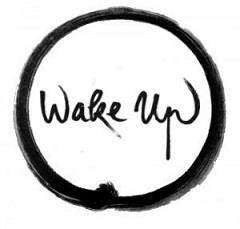The Monk Who Gave The Gift Of Fearlessness: A Tribute to Brother Phap Kinh
– Anonymous “I would like to think it might bring some comfort to those who knew him, and go some way towards giving him the send off I believe he deserves”
Occasionally we have an experience with someone that is so unexpected and so meaningful that it stays with us for the rest of our lives. It influences us so deeply that person we had the experience with becomes one of the most significant people in our lives.
I met Brother Phap Kinh in December 2009, in the wintery paths of Upper Hamlet, Plum Village. I had arrived in the French Buddhist monastery after a long and hard journey. I didn’t yet know that we’d both experienced a similar hardship to get there. As he showed the newcomers around the grounds I thought he seemed reassuringly warm compared to the rather stolid image I had of Buddhist monks (naively so). And yet he also had an intensity and purposefulness about the way he spoke and moved. This, along with his north American accent, and strong, shaven-headed Daniel Day-Lewis looks, made him seem like a man with the combined worldly and spiritual power of a warrior-monk, straight out of a movie. As you can imagine, my first meeting with a Plum Village monk left me impressed.
I was surprised, then, to hear that he was only a novice, having been ordained just a few months earlier. As he submitted himself to his (often much younger) spiritual elders, performing duties around the village and participating in group activities, I was struck by his humility. In the twice-weekly services that took place in the great hall, all of the 50 or so monks would rise together and chant in unison. I remember thinking that he stood out amongst the more placid and inexpressive young monks that surrounded him. There was experience in his face, and passion burning out of his eyes – as if he were a great man who, in his wisdom and love, was bringing humility upon himself in order to set an example to others.
In one of the talks during the first week, we were invited to approach a monk if we wanted to learn more about the practice or discuss anything. I had learnt a lot since arriving, but I was unsure about how it would transfer to the outside world, and I wanted to find a way of using what I’d learnt to support my family. I arranged to meet Kinh after one of the twice-weekly services in lower hamlet.
He invited me to sit with him by the pond, and in his direct yet gentle way he asked about my experiences there and why I’d come. He told me about his own experiences, and, as if it was inevitable that we would meet one another and have this conversation, we discovered that we had both lost our mothers at a young age – and both to suicide. When he realised this, I could see that it moved him; he shook his head slowly and mouthed “wow” in surprise as I told him the story. After that, the conversation reached a deeper level of significance, and for the next hour or two we told our stories and compared experiences. In that peaceful environment, and with the benefit of his mindfulness practice, we were able to become counsellors to the thoughts and emotions that surrounded the circumstances that had brought us to where we were. Before we got up to leave, he looked at me intensely and said that the best thing I could do for my family was to be happy. Then he hugged me, and said he would never forget our conversation.
During the rest of the week, unlike the other monks, I never saw Kinh flippantly joking around or doing anything in a casual or trivialising manner. On the contrary, he seemed somehow to bring the intensity I’d previously witnessed to everything he did. It is strange that honesty and courage in a person can be so unnerving. Perhaps it’s because it holds a mirror up to one’s own character, and brings us to doubt how we measure up. Kinh was unnerving in his sincerity. It was a disposition that could only come from someone who had known both great suffering and great joy, and had managed to fuse them together into the love and compassion he freely offered others. The poet, Khalil Gibran, seems to be aspiring to such a state in his poem, A Tear And A Smile, saying, “I would that my life remain a tear and a smile…a tear to unite me with those of broken heart; a smile to be a sign of my joy in existence.” For Gibran this was the peak of being – albeit not an easy state. Whilst the suffering that ‘brings a tear’ might – to paraphrase Nietzsche – make one stronger, the increased strength is matched by an increase in the burden one has to carry.
On the evening before I was due to leave, Kinh asked me to meet him after dinner. When I met him outside in the moonlight it was like stepping into another reality – one where every movement, every word, every action truly mattered; where life was just this moment, and nothing else was certain. He repeated that he would never forget our conversation, and said that he wanted to give me something. He said that the gift he wanted to give me was not something material, but the gift of fearlessness. He gave me a steely stare as if transmitting it through his eyes, and added that, wherever I was, whatever I was going through in my life, I would always have a brother that cared for me. The strong hug he gave me as we said goodbye confirmed that his words were not hollow.
I saw him again some months later at a retreat in Nottingham. We walked together, and he said, “the only I thing I want to know is – are you happy?” I said I was, and asked how he was. He said he was very happy. He agreed that he would try to return to the UK soon so that we might give some talks to young people, and introduce some of the Plum Village practices. Some months later, when a party from Plum Village arrived to tour universities, I was sad that he was not among them. During the months before and after the Nottingham retreat our conversations remained vivid, and despite not seeing him again, the strength of his words meant that he was a mentor that I could turn to when I needed guidance.
Occasionally we meet someone who leaves an impression upon us that’s so powerful it stays with us forever. For me, Kinh is, and will always be, nothing less than a hero. I would sooner walk beside him than any of the historic idols we’ve raised on pedestals. He was a man with the conviction of any leader I’ve known, but the humility to walk as one with everyone else.
Brother, thankyou for my gift – I will try to use it everyday for the rest of my life.
“And so does the spirit become separated from
The greater spirit to move in the world of matter
And pass as a cloud over the mountain of sorrow
And the plains of joy to meet the breeze of death
And return whence it came.
To the ocean of Love and Beauty—-to God” – Kahlil Gibran, A Tear And A Smile
Full poem here.




christersoderberg
Fearlessness and oneness; mindfullness and the meeting of two; beautiful, thank you!
verenaxs
Thanx for sharing this beautiful story 🙂
Carol
I just finished reading Thay’s book “Love” and he talks about children who lose their mothers-saying, “They lose a whole universe.” My 5 year old neighbor has just lost his mother to cancer-it is hard to figure what one can possibly do to help someone so young who has lost his whole universe.
Yaron
Thank you for sharing this. It sounds EXACTLY like Phap Kinh was and your words bring him back in vivid colors.
Fearlessness, Indeed. It certainly was a quality he had, and the humilty which allows one to be truly to close to others.
Contrary to what I have heard around thes epast few weeks, I am sure that Phap Kinh had opened up to the love and the help that many of us offered him out of attachment. He actually sought out this help in the gentlest most touching manner, and he did let this heal him. As best he could.
Sometimes, things – important things, like keeping on track, going on – are no longer possible. Simply.
Cheryl Rody
Thank you for sharing your experience with Phap Kihn. I knew him as Chris and knew him as far back as childhood. Even as a young six-year-old boy, he was special, with a compassion, perception, and early wisdom I’ve seen in perhaps three youngsters in my six decades of life. As an adult, I found him so very focused–e.g., when I was talking with Chris, I had his total attention. He spoke directly from his heart. He spoke the truth, which frequently gave me “Ah Hah” moments. By example, he taught me so much; with his words, he etched forgiveness, compassion, generosity, and non-attachment in my heart. One never truly knows how deep the pain that resides in the soul of someone. He spoke of the pain of his youth, his fractured family upon the death of his mother, his lifelong quest for spirital understanding and peace. This one beautiful human being touched the lives of thousands worldwide. How I wish I could hold him one more time and tell him how grateful I am that he is a part of my life. I pray his suffering is over, that he is with his mother in a better place. I will always love him and look forward to seeing him again. He will forever live in the hearts of those who love him. Smooth sailing Christopher Columbus Mierzejewski, Phap Kihn, my beloved Chris. I am grateful you are a part of my life, always.